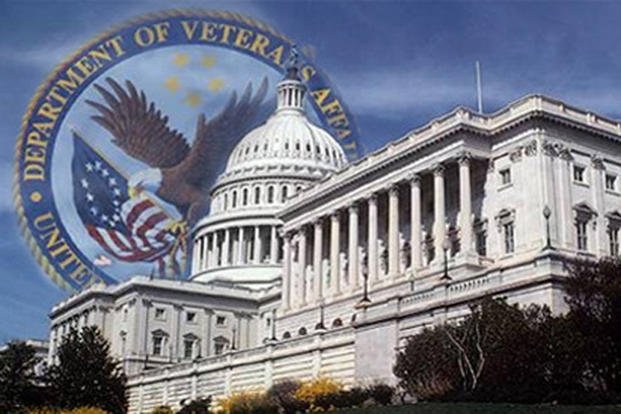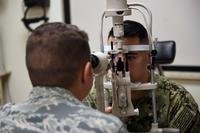Allowing more veterans to seek medical care outside VA facilities will save taxpayers billions of dollars over the next decade, top VA officials said.
VA Secretary David Shulkin on Monday said increasing private care options under the proposed Coordinated Access and Rewarding Experiences, or CARE, Act would result in an estimated "billions" of dollars in savings -- largely from reduced administrative costs -- over a 10-year period.
"Under the Veteran Care Act, veterans will have new access to a network of walk-in clinics for occasional needs such as minor illnesses and injuries," he said. "We're proposing consolidating Choice and all of VA's community care programs into a single program."
His comments came during a hearing of the House Veterans Affairs Committee, headed by Rep. Dr. Phil Roe, a Republican from Tennessee.
How It Could Work
Shulkin didn't go into details on the proposed program's cost or implementation plan, but he did lay out its general framework.
Under the CARE Act, the department would allow a veteran to see a non-VA doctor for a number of reasons, including if the department is unable to supply an in-house appointment within a reasonable amount of time, if the veteran has to travel too far to see a doctor or if the nearest VA facility doesn't meet the "standards of access and quality of care."
The secretary's testimony didn't fully outline how the VA would determine whether or not a department facility is meeting standards of access and quality of care. The VA website does have data comparing their medical facilities to civilian healthcare, but the information is somewhat limited.
Shulkin was also vague on what a veteran will be able to do if unhappy with treatment received at a VA facility. In the civilian world, people can simply go to a different doctor. But the secretary only said treatment would be based on "clinical criteria," and that the decision to send him or her to a civilian doctor would be made by the veteran and a doctor.
Representatives agreed with the Shulkin's opinion that the new program would most help rural veterans. Under the new program, rural vets would be assigned to a civilian doctor, and wouldn't have to get VA approval to visit that doctor each time they needed healthcare.
Care to Replace Choice
The CARE Act is designed to replace the existing VA Choice program, which is projected to run out of funding by the end of the year.
Under the current Choice program, veterans can see a civilian doctor if they cannot get an appointment with the VA within 30 days, or if they must travel more than 40 miles to see a department doctor. Veterans in certain locations, such as Alaska, are also automatically enrolled in Choice regardless of their proximity to the VA hospital.
Under Choice, the VA makes civilian appointments for eligible veterans, and subsequently takes care of all the payments. But some civilian doctors have complained that the VA takes too long to pay, or doesn't pay them enough.
The VA hasn't said how the appointment process would work under the proposed CARE program, but they plan on automating the payment process to attract more civilian doctors to the system.
New Access to Urgent Care
The CARE Act would also create an entirely new benefit: a nationwide network of urgent care providers to allow veterans needing treatment for things like sprained ankles, stitches or lab tests to walk into a clinic and receive free treatment.
The conditions need not be related to a service-connected disability.
However, most veterans would only get two free visits each year, after that a copay would be charged. Veterans who are currently not required to make a copay would continue to receive free treatment under this plan.
Increasing VA, DoD Partnership
Another provision of the CARE act calls for a closer partnership between the VA and Defense Department.
Under the proposed rules, service members and their families would be able to receive treatment at VA hospitals, and veterans would be able to get treatment at Defense Department health care facilities.
Shulkin says this will also save taxpayers in the long run.
Mixed Reactions
Officials were tight lipped on how the VA would fund this new program, but some veterans groups fear that VA disability cost-of-living increases and GI Bill programs would be cut to pay the costs.
The American Legion said they oppose any effort to pay for the Choice program by rounding down cost-of-living adjustments to veterans who receive disability compensation over the next decade -- a routine accounting practice until a few years ago, among other cost-savings measures.
“The Legion is appalled that either Congress or the administration would recommend that veterans disability checks be debited, even one dime, to cover the costs of other veterans benefits,” said Legion member Roscoe Butler, Stars & Stripes reported. “Veterans’ health care should not be subjected to offsets or pay-fors.”
Vets groups also questioned how qualified civilian doctors are at handling veteran specific conditions such as PTSD or other service-related conditions.
Meanwhile, federal unions are concerned that thousands of jobs would be lost if the program is fully implemented. Many fear that this program is the first step toward VA privatization, a claim the secretary repeatedly denied.
While some representatives were skeptical of Shulkin's money-saving claims, saying they had "heard this from VA secretaries many times before", the secretary replied, "this is a new VA."
-- Jim Absher can be reached at Jim.Absher@Monster.com.




